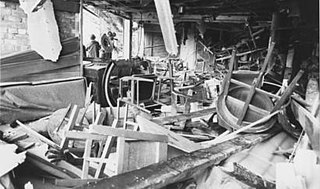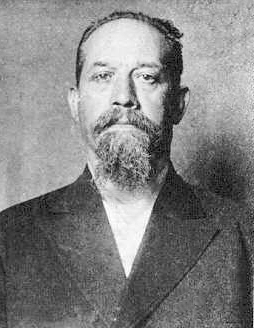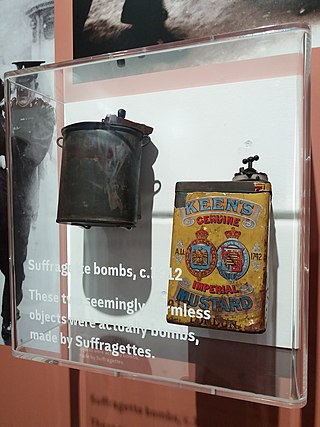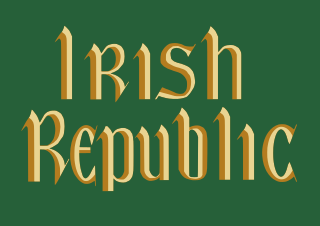
The Birmingham pub bombings were carried out on 21 November 1974, when bombs exploded in two public houses in Birmingham, England, killing 21 people and injuring 182 others.
In December 2000, an al-Qaeda-linked plot to bomb the Strasbourg Christmas market, at the feet of the Strasbourg Cathedral, on New Year's Eve was discovered. The plot was foiled by French and German police after a terrorist network based in Frankfurt, Germany, the "Frankfurt group", was unravelled. A total of fourteen people were convicted as part of the plot; four in Germany and ten in France, including the operational leader, Mohammed Bensakhria, thought to be a European deputy to Osama bin Laden. The alleged mastermind of the plot was thought to have been Abu Doha, who was detained in the United Kingdom.

The Sydney Hilton Hotel bombing occurred on 13 February 1978, when a bomb exploded outside the Hilton Hotel in George Street, Sydney, Australia. At the time the hotel was hosting the first Commonwealth Heads of Government Regional Meeting (CHOGRM), a regional offshoot of the biennial meetings of the heads of government from across the Commonwealth of Nations.
The S-Plan or Sabotage Campaign or England Campaign was a campaign of bombing and sabotage against the civil, economic and military infrastructure of the United Kingdom from 1939 to 1940, conducted by members of the Irish Republican Army (IRA). It was conceived by Seamus O'Donovan in 1938 at the request of then IRA Chief of Staff Seán Russell. Russell and Joseph McGarrity are thought to have formulated the strategy in 1936. During the campaign there were 300 explosions/acts of sabotage, 10 deaths and 96 injuries.
Terrorism in Australia deals with terrorist acts in Australia as well as steps taken by the Australian government to counter the threat of terrorism. In 2004 the Australian government has identified transnational terrorism as also a threat to Australia and to Australian citizens overseas. Australia has experienced acts of modern terrorism since the 1960s, while the federal parliament, since the 1970s, has enacted legislation seeking to target terrorism.

On 29 June 2007, two car bombs in London were discovered and disabled before they could be detonated. The first device was left near the Tiger Tiger nightclub in Haymarket at around 01:30, and the second was left in Cockspur Street, located in close proximity to the nightclub.
On 29–30 June 2007, two related terrorist incidents occurred in the United Kingdom. In the second incident, one of the two perpetrators was killed, while five civilians were injured, none of them seriously.

In the United States, a common definition of terrorism is the systematic or threatened use of violence in order to create a general climate of fear to intimidate a population or government and thereby effect political, religious, or ideological change. This article serves as a list and a compilation of acts of terrorism, attempts to commit acts of terrorism, and other such items which pertain to terrorist activities which are engaged in by non-state actors or spies who are acting in the interests of state actors or persons who are acting without the approval of foreign governments within the domestic borders of the United States.

Eric Muenter, also known as Erich Münter, Erich Muenter, Erich Holt or Frank Holt, was a German-American political terrorist, activist, spy, professor and would-be assassin. Although employed as a German professor at elite American universities, he was actually a spy and a "fanatic in the clandestine service of the Imperial German government." While an instructor at Harvard University, he poisoned and killed his pregnant wife.
On October 29, 2010, two packages, each containing a bomb consisting of 300 to 400 grams (11–14 oz) of plastic explosives and a detonating mechanism, were found on separate cargo planes. The bombs were discovered as a result of intelligence received from Saudi Arabia's security chief. They were in transport from Yemen to the United States and were discovered at stopover locations: one at East Midlands Airport in the UK and one in Dubai in the United Arab Emirates.
Cuban Power, also known as El Poder Cubano or United Cuban Power was an anti-Castro terrorist group that conducted bombings against Cuban targets and states and entities they felt to be sympathetic to the Castro regime through early and mid-1968.

Islamic terrorism in Europe has been carried out by the Islamic State (ISIL) or Al-Qaeda as well as Islamist lone wolves since the late 20th century. Europol, which releases the annual EU Terrorism Situation and Trend report (TE-SAT), used the term "Islamist terrorism" in the years 2006–2010, "religiously inspired terrorism" 2011–2014, and has used "jihadist terrorism" since 2015. Europol defines jihadism as "a violent ideology exploiting traditional Islamic concepts".

Galleanisti are followers or supporters of the insurrectionary anarchist Luigi Galleani, who operated most notably in the United States following his immigration to the country. The vast majority of Galleanisti or Galleanists were similarly poor and working class Italian immigrants or Italian Americans, and especially Italian anarchists and Italian immigrants or Italian-Americans involved in the labor movement of the time. Galleanists remain the primary suspects in a campaign of bombings between 1914 and 1920 in the United States.

The Zeppelin LZ 23 was the 2nd improved L-class Zeppelin, and the eleventh airship of the Imperial German Army, first flown on 21 February 1914 and shot-down by anti-aircraft fire on 23 August 1914.

Suffragettes in Great Britain and Ireland orchestrated a bombing and arson campaign between the years 1912 and 1914. The campaign was instigated by the Women's Social and Political Union (WSPU), and was a part of their wider campaign for women's suffrage. The campaign, led by key WSPU figures such as Emmeline Pankhurst, targeted infrastructure, government, churches and the general public, and saw the use of improvised explosive devices, arson, letter bombs, assassination attempts and other forms of direct action and violence.

The New Irish Republican Army, or New IRA, is an Irish republican paramilitary group. It is a continuation of the Real Irish Republican Army, which began to be called the 'New IRA' in July 2012 when Republican Action Against Drugs (RAAD) and other small republican militant groups merged with it. The group calls itself simply "the Irish Republican Army". The New IRA has launched many attacks against the Police Service of Northern Ireland (PSNI) and the British Army. It is the largest and most active of the "dissident republican" paramilitary groups waging a campaign against the British security forces in Northern Ireland.

Imperial German secret agent Lieutenant Robert Fay arrived in New York in April 1915 with a mission to sink freight ships on the East Coast of America during World War I. He was arrested in October 1915.











